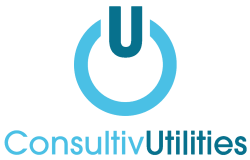
Understanding Streamlined Energy and Carbon Reporting (SECR) is the first step towards achieving compliance.
But what exactly is SECR, and which businesses are impacted by these legislations? We’ve got all the information you need to make sure your business is meeting its compliance standards.
What is SECR?
SECR was introduced on 1 April 2019 by the UK. The initiative is aimed at reducing CO2 emissions by enhancing the transparency of energy use and emissions in companies.
The scheme requires large organisations to publicly disclose their energy use and carbon output within their Annual Report. The reporting period should ideally correspond with your organisation’s financial year so that comparisons for both aspects can be compared easily. SECR is part of a wider effort to cut carbon emissions for larger businesses, aiming to measure, monitor carbon emissions from large corporations.
Why do we need SECR?
Prior to 2019, the Companies Act of 2006 was the only legislation holding large businesses accountable for their carbon footprint. This involved businesses reporting their carbon emissions in annual reports and accounts, but under the Companies Act 2006, this was only required by FTSE Main Market companies.
With pressure mounting for the UK to meet climate change targets, the government launched SECR so that all large UK businesses were required to report their carbon emissions and energy usage annually.
Many may wonder why SECR is necessary when ESOS already exists. The Energy Savings Opportunity Scheme seems to have all bases covered, stemming from EU legislation, but it only applies to large entities under the EU definition and only requires reporting every 4 years. Because of this, ESOS alone cannot be relied upon to generate the year-on-year carbon savings required to accurately mitigate the climate crisis.
SECR offers accurate, frequent carbon reporting that streamlines multiple carbon and financial reports. This makes it easier to monitor and achieve reduced carbon levels.
Who does SECR apply to?
To qualify for SECR, large businesses must meet at least two of the following criteria within a financial year:
- 250+ employees
- An annual turnover of at least £36 million
- An annual balance sheet of at least £18 million
Qualifying businesses are required to report their UK energy use and associated greenhouse gas emissions. Not meeting the reporting requirements of SECR may result in accounts not being signed off, which in turn can lead to fines and civil penalties.
Benefits of reporting SECR
More and more investors, shareholders and stakeholders are placing environmental impact and responsible sourcing at the top of their agenda. By measuring and reporting on your organisation’s environmental performance, these stakeholders can get a better understanding of your business. And, with the increasing number of organisations also seeking this information from suppliers, it’s important to stay competitive by making sure this information is readily available.
Consultiv Utilities can help you meet the criteria necessary for compliance
Achieving SECR compliance may seem like a complicated process. However, the corporate team at Consultiv are on hand to help your organisation through the necessary steps. By working closely with your organisation, we will ensure that your utilities are manageable, transparent and SECR compliant.
Furthermore, our experts can help to make sense of your energy contracts. We can help to implement the necessary steps to ensure that you are on a competitive fixed or flexible business energy contract that is best suited to your consumption and budgeting requirements. We can also support you with optimising your energy efficiency and improving your environmental credentials in the process.
Are you ready to improve your energy outlook? Get in touch with the team at Consultiv Utilities today.
Categories:

